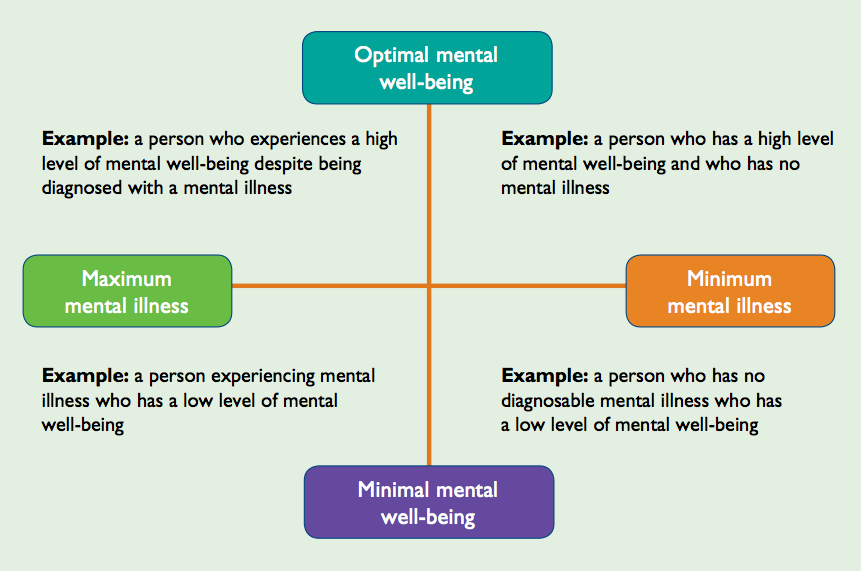Not known Factual Statements About How Does Stress Affect Mental And Emotional Health
While mental illness can occur at any age, three-fourths of all mental disorder starts by age 24. Psychological illnesses take numerous kinds. Some are mild and only interfere in restricted ways with day-to-day life, such as particular phobias (irregular worries). Other mental health conditions are so severe that an individual may require care in a health center. Almost every individual deals with mental health challenges at some time. Major stresseslike the death of a liked one, divorce, loss of a task, or movingcan have a significant influence on mental health.
Having.

a severe disease, like HIV, can be another source of significant tension. You may find that a diagnosis of HIV difficulties your sense of wellness or makes complex existing mental health conditions. Substance Abuse Center Great mental health will help you live your life to the maximum and is essential to effectively treating HIV. how to become a mental health advocate. To assist handle your psychological health, it is.
How How Does Stigma Relate To Mental Health can Save You Time, Stress, and Money.
essential to understand when, how, and where to get assistance. Lots of psychological health conditions are treatable and many people with mental health conditions recuperate totally. Anxiety can vary from moderate to serious, and the symptoms of depression can impact your day-to-day life. Both HIV-related medical conditions and HIV medications can contribute to anxiety. Mental Health Doctor Symptoms can consist of: Feeling unfortunate or anxious frequently or.
all the timeNot wanting to do activities that used to be funFeeling irritable easily disappointed or restlessHaving trouble falling asleep or remaining asleepWaking up too early or sleeping too muchEating more or less than usual or having no appetiteExperiencing pains, discomforts, headaches, or stomach problems that do not improve with treatmentHaving difficulty concentrating, keeping in mind details, or making decisionsFeeling tired even after sleeping wellFeeling guilty, useless, or helplessThinking about suicide or hurting yourselfOther mental health conditions include anxiety disorders, mood conditions, and character disorders. Some may feel trapped, helpless, or may wonder what they have to live for. If you are having thoughts like these or are believing about hurting or killing yourself, understand that you are not alone which things can alter. SAMHSA's Suicide Avoidance Lifeline offers 24/7, totally free and private assistance for individuals in distress - how does stigma affect mental health. Get info online or call:-LRB- 800) 273-TALK( 8255). Get help from another health care company. Reach out to a buddy or loved one. Contact a minister, spiritual leader, or another person in your faith community. Speak to your HIV healthcare service provider if you are experiencing any of the signs above.
Your company may ask you some questions to evaluate how you are feeling and may prescribe medications to assist with anxiety or stress and anxiety or refer you to a mental health expert. Nevertheless, some antiretroviral medications might trigger signs of depression, stress and anxiety, and sleep disruption, and may make some psychological health problems even worse. Talk with your health care provider to much better comprehend how your HIV treatment may affect your mental health and if.
Some Ideas on When Is National Mental Health Day You Should Know

anything can be done to attend to the side results. Discuss any changes in the method you are thinking, or how you are feeling about yourself and life in basic. Since mental health conditions are common, numerous outlets can help you keep good mental health. If you are having symptoms of depression or another mental health condition, speak with your health care supplier, social worker, or case manager. Types of psychological health service providers consist of: Psychiatrists: Clinically trained physicians who treat mental health problems with various treatments, like talk treatment, and by recommending medication. Psychologists: Trained specialists who help people handle life challenges and psychological health problems with therapies, like talk therapy, however normally can not recommend medications. Therapists: Mental health or marital relationship and household counselors who assist people manage life issues and mental illness. Assistance groups include: Mental health assistance groups: An orderly group of peers who meet in a safe and helpful environment to provide mental health assistance to members of the group. HIV support groups: An orderly group of peers coping with HIV who satisfy in a safe and supportive environment to offer support to other individuals dealing with HIV.Work with an experienced psychological health professional to find out about treatment alternatives such as treatment and/or medication. Other ways to assist enhance mental health and well-being include: You may find it handy to create an action plan for your mental well-being. SAMHSA uses a totally free self-help guide you can use to develop and maintain a wellness prepare for yourself. Lots of organizations have websites and telephone hotlines that can help you find treatment for mental health conditions.
Psychological health includes our emotional, psychological, and social well-being. It impacts how we believe, feel, and act. It also assists identify how we manage tension, connect to others, and choose. Psychological health is essential at every stage of life, from youth and adolescence through the adult years. Throughout your life, if you experience psychological illness, your thinking, state of mind, and habits could be impacted. People with psychological illness can improve and numerous recuperate entirely. Unsure if you or somebody you know is coping with mental health problems? Experiencing one or more of the following sensations or habits can be an early indication of a problem: Eating or sleeping too much or insufficient Retreating from individuals and usual activities Having low or no energy Feeling numb or like absolutely nothing matters Having unexplained pains and discomforts Feeling helpless or hopeless Smoking cigarettes, drinking, or utilizing drugs more than normal Feeling abnormally confused, absent-minded, on edge, angry, upset, concerned, or frightened Yelling or fighting with friends and family Experiencing serious mood swings that cause issues in relationships Having relentless thoughts and memories you can't get out of your head Hearing voices or believing things that are not real Thinking about damaging yourself or others Failure to carry out daily tasks like taking care of your kids or getting to.
